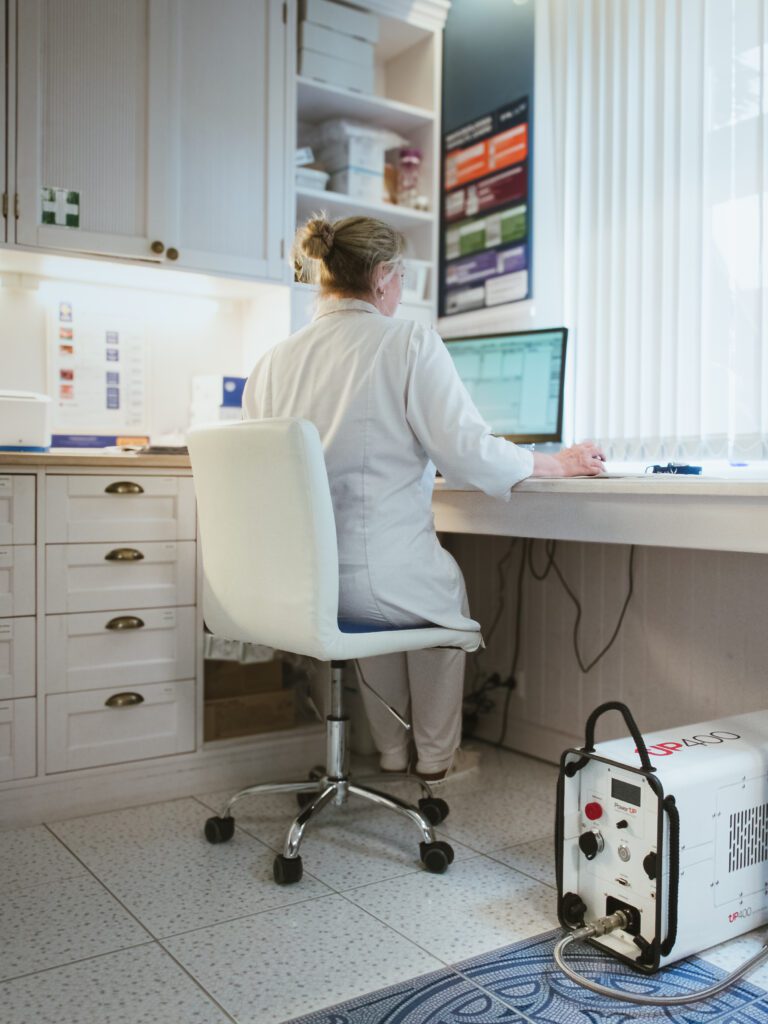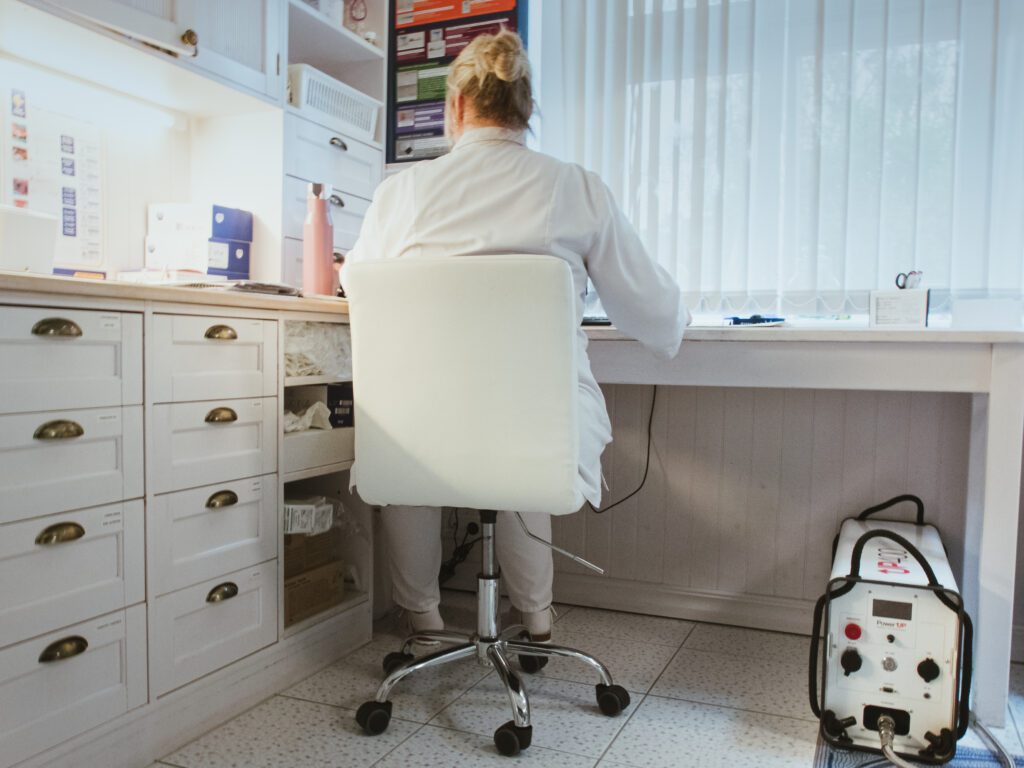
The photo is for illustrative purposes only.
Written by Tarmo Virki, PowerUP
It’s not just about keeping the lights on; it’s about lives and the delicate balance of patient care. In Estonia, where all patient data and the prescription system are fully online, this digital backbone is crucial for administering life-saving drugs. Without electricity, doctors cannot access patient notes or sign prescriptions, severely hindering patient care.
Take, for instance, a health center like the one in Paide. It serves as a vital hub for its community. Like many medical facilities, they face an ongoing, quiet challenge: ensuring the integrity of their medicines, many of which require strict temperature control. A power outage, even a brief one, can be more than just an inconvenience in these settings; it can be a significant risk to their cold chain.
This is where innovative solutions like hydrogen fuel cell generators are, perhaps, quietly revolutionizing operations. The Paide health center has been utilizing a PowerUP 1K generator, and its performance has been an eye-opener for how this technology can offer crucial Uninterruptible Power Supply (UPS).
Dr. Ingrid Alt, the Chief Executive of the center, shared her perspective on the system’s impact. She noted that before having the PowerUP unit, even minor power flickers or storm warnings created significant stress for the staff, leading to constant worry about the integrity of refrigerated medicines and vaccines. With the hydrogen generator, the transition to backup power during grid issues has been seamless, providing a notable sense of peace of mind. This reliability allows her staff to focus more intently on patient care, which is their primary mission.

The photo is for illustrative purposes only.
It’s noteworthy how the application of hydrogen, often seen as an industrial-scale solution, demonstrates its versatility in something as specific as a refrigerator in a regional health center.
PowerUP’s UP1K isn’t a massive installation; it’s a practical unit designed for precisely these kinds of essential backup needs. Dr. Alt also acknowledged the environmental benefits as a welcome bonus, but stressed that for day-to-day operations, the paramount factor is the reliability in protecting the cold chain for vital medicines.
Healthcare clinics stand to gain significant advantages by integrating hydrogen technologies, particularly in the realm of energy resilience and sustainability. Unlike traditional backup power sources like diesel generators, hydrogen fuel cells offer a clean, quiet, and reliable alternative, operating without harmful emissions or noise pollution. This is especially beneficial in sensitive healthcare environments where air quality and patient comfort are paramount.
Beyond emergency power, hydrogen can contribute to reducing operational carbon footprints, aligning clinics with growing environmental regulations and patient expectations for greener healthcare. The long-duration storage capability of hydrogen also provides a superior solution compared to batteries for extended power outages, ensuring continuous operation of critical medical equipment and patient care services.
Potential use cases for hydrogen in clinics are diverse and impactful. Primary applications include serving as an uninterruptible power supply (UPS) for critical departments like emergency rooms, operating theaters, and data centers, ensuring uninterrupted power for life-saving equipment.
Hydrogen fuel cells can also power entire clinic buildings, either independently as off-grid solutions in remote areas or as part of a hybrid system integrated with the main grid, offering peak shaving capabilities and reducing electricity costs. Furthermore, smaller, portable hydrogen generators could provide backup power for mobile medical units or temporary field clinics, offering flexibility and rapid deployment.
For safety management, clinics must adhere to stringent national and international hydrogen codes and standards. This involves rigorous site assessment for proper ventilation and leak detection, meticulous installation by certified professionals, regular maintenance of all hydrogen systems, and comprehensive training for staff on handling procedures, emergency protocols, and the properties of hydrogen. Implementing robust monitoring systems and maintaining clear separation from ignition sources are also crucial to ensuring a safe operating environment.
It’s not always about grand gestures. Sometimes, the most significant advancements are those that ensure the quiet, consistent functioning of essential services. The work at the Paide Health Center, supported by PowerUP’s hydrogen generators, is a testament to that. It’s about ensuring that when a patient needs a particular medicine, it’s there, it’s safe, and it’s effective – powered, in part, by a silent, green guardian. This highlights the potential for reliable, clean power to make a real difference in many other critical areas.
PowerUP has executed a hydrogen fuel cell generator-based automated backup system integration and operational testing for critical services at the Paide centre as one of the hydrogen consumption use cases under the BalticSeaH2 project.